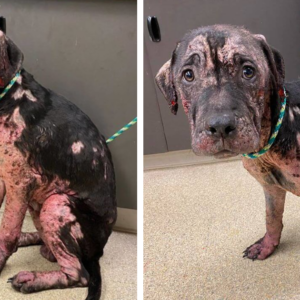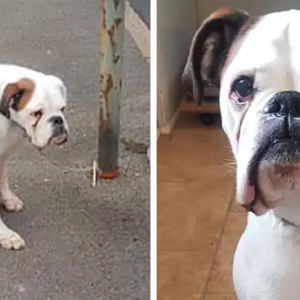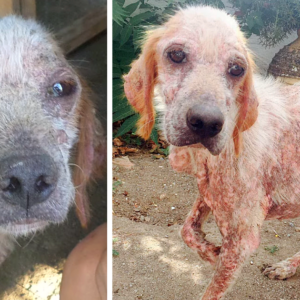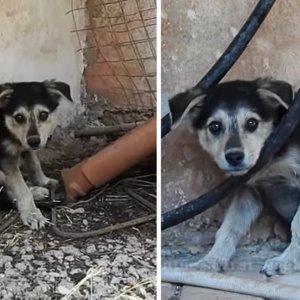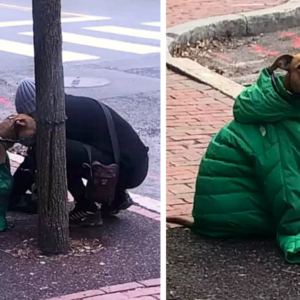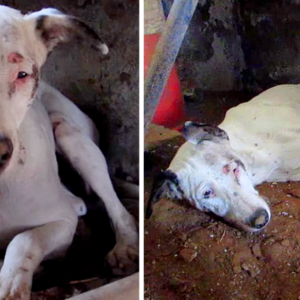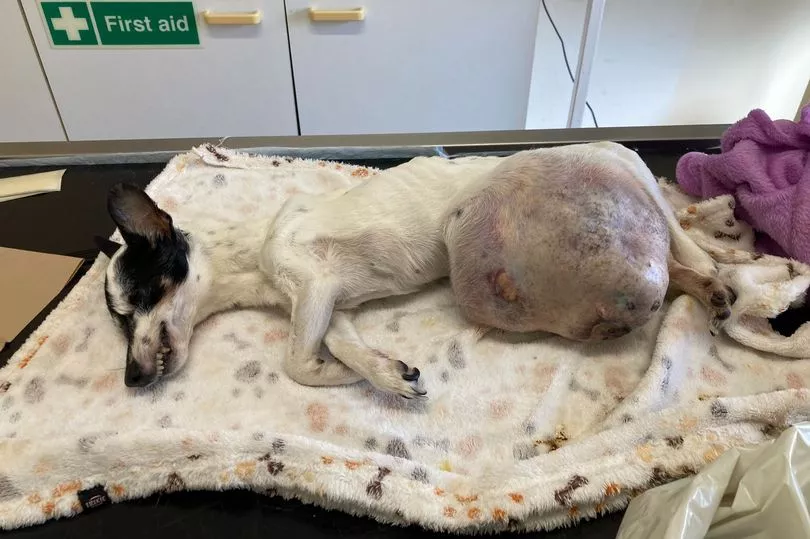
Two cruel dog owners let their pet die after failing to take her to the vet even when a huge tumour started growing on her stomach. Jack Russell Terrier Tilly-May was left incredibly thin with an enormous ulcerated tumour that was around half the size of her entire body across her abdomen, but throughout her life was never seen by a vet who could have saved her life.
The 13-year-old dog was treated terribly by her owners, Terence and Melenie Box, both of Brynawel Crescent, Swansea, who appeared in court on Friday, October 7, after pleading guilty to causing unnecessary suffering to their pet. Get the latest news from across Swansea sent straight to your inbox for free by signing up to our newsletter. The court heard from an RSPCA inspector that Tilly-May had never received any veterinary treatment, nor had she received any vaccinations or boosters. The ulcerated tumour she was left with was so big it would touch the ground when she would try to walk.
The RSCPA were only alerted to Tilly-May’s condition after she died at home and her owners took her body to a vets to be cremated. The dog was found to be emaciated with a “large, ulcerated and necrotic tumour”, with RSPCA inspector Gemma Cooper telling the court it was evident that “no preventative veterinary treatment or advice had been sought over the course of her 13 years.”
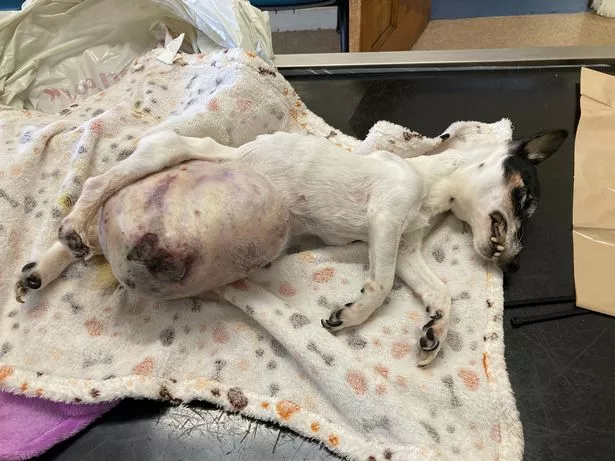
She added: “Vets often recommend spaying female dogs to prevent diseases such as mammary gland tumours. When Tilly May started to develop a large mass, prompt veterinary treatment was not sought.”
A vet who examined Tilly-May when her owners took her body to be cremated also told the court that the most notable finding was a “large mass (tumour) seemingly associated with one of Tilly May’s mammary glands”. They said that the mass “spanned the whole length and width of her abdomen” and “extended down to the level of her paws.”
“There was evidence of ulceration and necrosis of the mass,” they added. “Most likely due to being in contact with the ground when Tilly May tried to walk, which in my opinion would cause pain. Tilly May had a body condition score of one out of nine (with one being emaciated and nine obese). This could be a result of the large tumour present (particularly if it had spread to other parts of her body) or of other chronic pathological processes ongoing which unfortunately would be undetectable on a deceased animal.”
The vet added that, due to the tumour making her unable to walk properly, Tilly May also had “very overgrown nails” which were starting to “curl round into the pads of the foot” and would have caused her even more pain. They added: “She also had fairly severe dental disease present with heavy calculus build up and marked gum recession particularly over her upper canines. In my opinion this would have been uncomfortable and may have contributed to her poor body condition if Tilly May was more reluctant to eat.
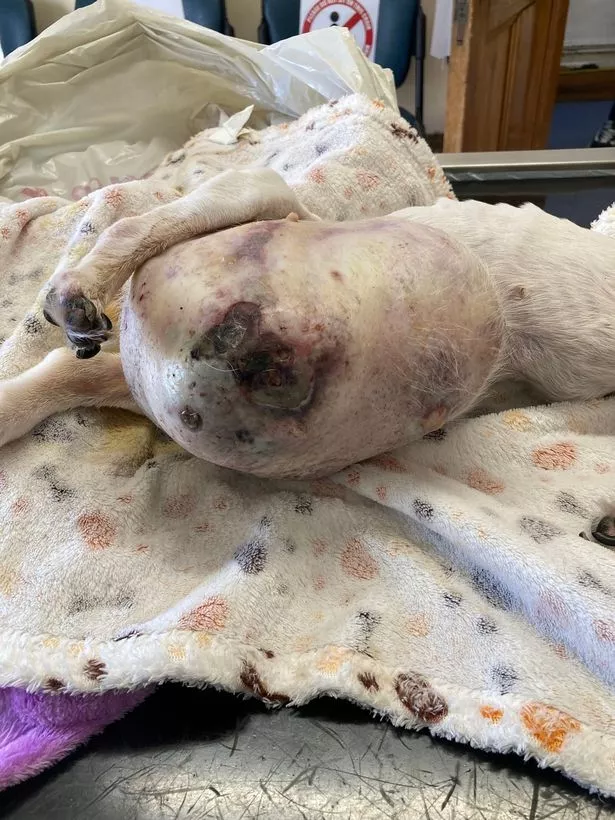
“In my professional opinion, Tilly May is likely to have been suffering for some time. As she was deceased on presentation and we have no history from the owner it is difficult to know exactly how long.”
At Swansea Magistrates Court, Terence Box, 68, was sentenced to 12 weeks imprisonment suspended for 12 months. He will also have an electronically monitored curfew between the hours of 8pm and 6am for 16 weeks and will be required to undertake 10 Rehabilitation Requirement days, while also paying £250 costs and a victim surcharge of £128.
Melenie Box, 46, was sentenced to 12 weeks imprisonment suspended for 12 months. She is also required to undertake 10 Rehabilitation Requirement Days, a 12 month Mental Health Treatment Requirement and 160 hours of unpaid work. She was also ordered to pay £250 costs and a victim surcharge of £128.
The pair were both banned from keeping all animals for life. They may not apply for that order to be terminated for a period of five years. After sentencing, Ms. Cooper, said: “Tilly-May had the biggest tumour that I or my colleagues had ever seen. It is so very sad that they left their beloved pet to get to this stage. It is so important to seek veterinary treatment at the earliest opportunity.”
